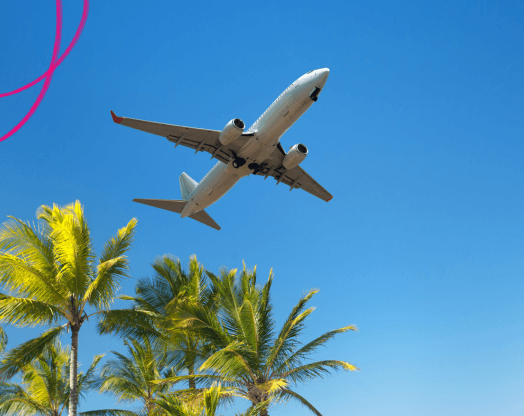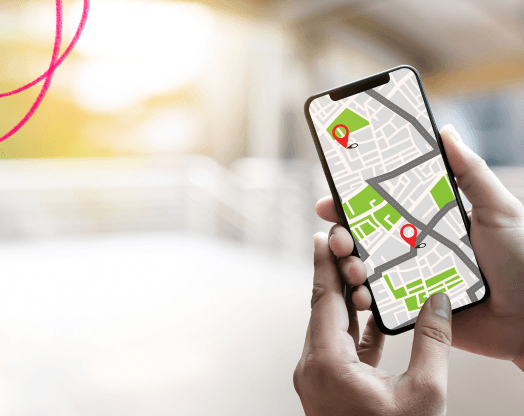While travelling to a new country can be exciting, the build up before you leave or the anticipation of venturing to an unknown place can be daunting. For some, even the thought of everyday local travel, such as using public transport for daily needs, can trigger anxiety. For others, the thought of flying in a plane or coursing under the Channel in a high-speed train can similarly be enough to make you anxious.
Whether your local bus journey is daunting, or you’re a nervous flyer, it’s important to know that there’s help available. Perhaps you worry about the disruption an unplanned business trip or longed-for beach holiday might have on routine, or you’re worried vertigo can ruin a walking trip. Whatever concerns you have, it’s important to know that you’re not alone.
If you worry about motorway driving or are in a situation that frightens you when you’re away, the physical symptoms of panic known as “flight and flight” can feel scary. This is your body’s survival mode kicking in and, while a level of caution can be good, don’t let these anxieties prevent you from considering enjoyable travel experiences. For example, exploring the UK by campervan with friends could offer a greater sense of freedom and control over your environment.
So, whether you’re organising a short family break or looking forward to a gap year following your studies, this article explores key ways to prioritise your mental health before and while you’re away.
Understanding how travel might impact mental health
Firstly, understanding how travel can affect your mental health will help you to realise what’s going on, encourage you to talk openly about the way you feel prior to a trip of any kind, and if and when you need a bit of extra support. Likewise, if you’re a parent, teacher or are employed at a school, university or any community organisation that plans away breaks, you might want to seek advice to learn how to spot the signs of travel anxiety.
To avoid the excitement of a forthcoming trip becoming overwhelming or a logistical nightmare, consider the potential challenges beforehand:
- Find out about a country or unfamiliar environments before you travel.
- Look into coping with jet lag.
- Appreciate potential language barriers.
- Think about your feelings about leaving family and friends at home.
- Consider what to pack or shop for abroad to improve your mental health.

If you have any pre-existing mental health issues or you’re worried that getting on a plane will trigger anxiety, depression, Obsessive Compulsive Disorder (OCD), or feelings of being unable to cope on the trip, be mindful that travel can create stressors, may exacerbate symptoms or re-ignite unexpected responses. If this is the case for you, or is making a person you know anxious, then it can be reassuring to know there is counselling available and appreciate the value of talking to alleviate feelings of dread.
Research indicates that while travel can enhance happiness and reduce stress through new experiences and leisure activities, it also carries its own set of psychological challenges. Be aware that activities you enjoy or new experiences you want to explore, especially when travelling with young people, can induce anxiety in others. Recognising these potential impacts is the first step towards proactively caring for and managing mental health on all your travels.
Preparing for your trip
If you do have a trip planned that you’re over-thinking, it can help to plan ahead and ensure you have as many practical tools and comforting items such as a colouring book, your favourite music or other objects and activities that you can do on your trip to calm your nerves. One of a few phobias about jetting off somewhere is known as “preparation paralysis”. This is when you can become overwhelmed by the idea of going away, over-schedule, or avoid the trip altogether.

Similarly, learning how to manage your pre-travel stress is helpful especially in the days or weeks leading up to the departure date—a time that often triggers heightened feelings of anxiety. Some of the following techniques, may dampen these feelings:
- Practising mindfulness meditation to centre yourself in the pre-travel stages.
- Imagining that you have flown somewhere and enjoyed the journey to make the entire experience more positive rather than negative.
- Creating checklists to avoid that horrible feeling that you’ve forgotten something.
- Voicing your concerns with friends, colleagues and family.
- Learning coping strategies, particularly with flying, such as familiarisation with aircraft processes, or speaking with your GP for short-term anxiety management options.
Maintaining your wellbeing on the move
If the thought of having a different routine when you’re in a new country or environment fills you with panic, then there are ways to reflect on what parts of your day-to-day life you can replicate while you’re away. Knowing that your home comforts are accessible overseas may reassure you, whether that’s knowing there is vegan food there, that you have access to medical facilities, or a good WiFi connection.
If you’re worried about sleep, pack eye masks, earplugs, or a travel pillow and limit caffeine and alcohol. If your insomnia does strike, have relaxation techniques ready rather than losing sleep.
Travel can disrupt our eating patterns but you’ll still want to sample local cuisine. Mindful eating and staying hydrated while travelling, particularly during long flights and in hot climates, will support both your mental and physical wellbeing. A lot of travellers feel the same and you’re not alone if you do worry about such things as camping for the first time, or that a city may not be safe, so look online for travel and security advice.
Navigating challenges in unfamiliar environments
Be aware that the novelty of different sights, customs, and people can sometimes be overwhelming, or potentially create culture shock and anxiety. Remember, this is a common reaction, rather than a personal failing, and embracing cultural differences can be a fascinating and healthy aspect of travel. Instead of being afraid, view travel adventures as positive, valuable opportunities for learning, personal growth, and inspiration.
Travel can excite and challenge you in equal measure, so if you do suffer from any type of anxiety, being able to adapt can help you navigate your trip and your mental health. By prioritising your mental wellbeing alongside your travel experiences, you’ll hopefully be more likely to relax, sit back and have the holiday of a lifetime.